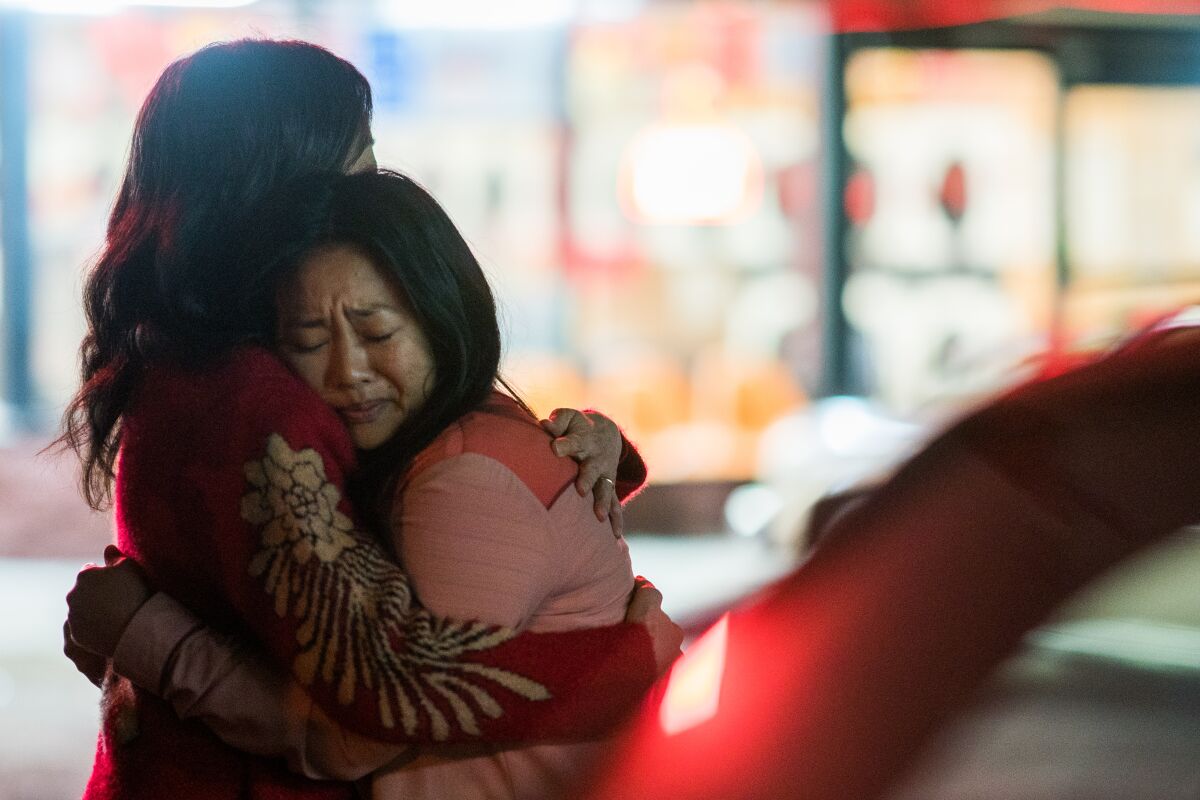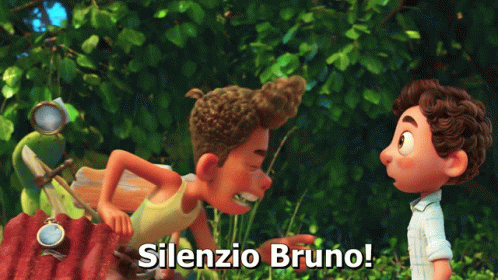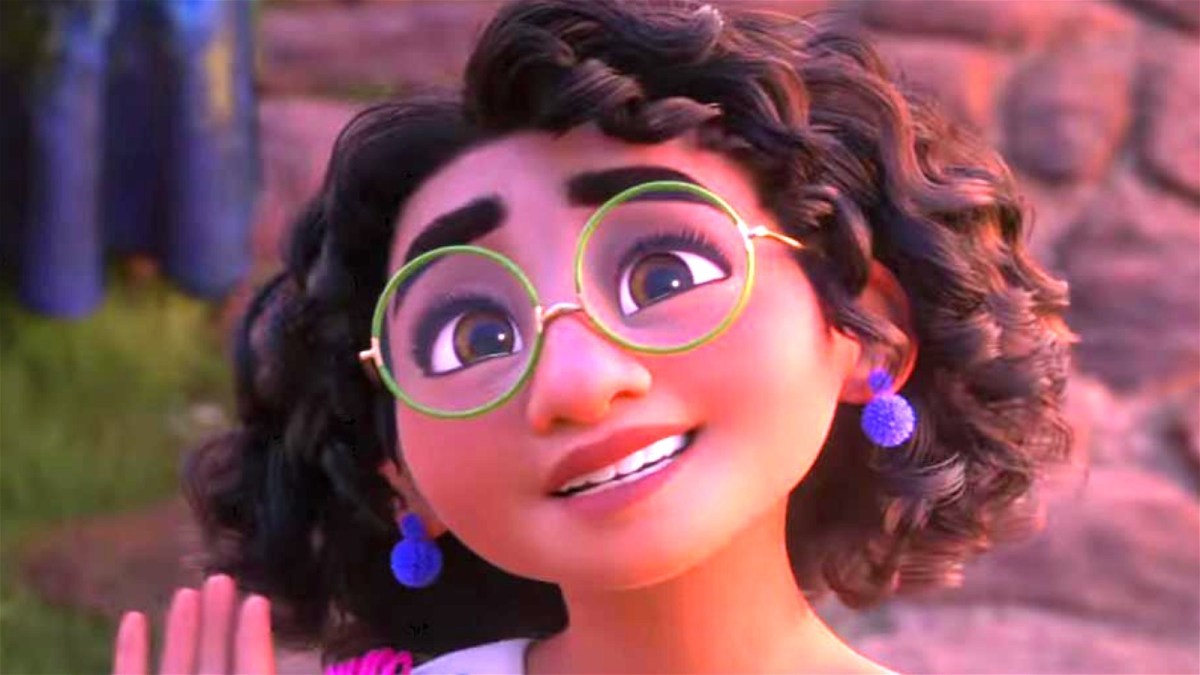Kids’ Struggle To Watch ‘EEAAO’ With Immigrant Parents Shows Why It’s Important
"moms who inflicted EEAAO-level trauma but did not understand EEAAO is my favorite genre" -Ashley Ray

Generational Trauma films are basically their own genre at this point. From Everything Everywhere All at Once to Turning Red and Encanto, these films are geared towards very young audiences, as well as towards adults.
It’s as if our current crop of filmmakers, several of whom are People of the Global Majority (PGM), have decided to sort through their family generational trauma all at once, very publicly, in order to spare the next generation the same pain. If only more of our PGM immigrant parents were as interested in healing and preventing trauma as their children. Then again, tuning out opportunities for healing is itself a trauma response.
Generational trauma films hit different for immigrant families
Actor and writer Ashley Ray posted the following tweet saying, “moms who inflicted EEAAO-level trauma but did not understand EEAAO is my favorite genre.”
While Ray understands that the generational trauma depicted in Everything Everywhere All at Once is very real and different for those whose parents weren’t born in the U.S, the text exchange she shared was, for her, simply an example of her mom being so distracted by Hot Dog Fingers that she couldn’t process the rest of the film—not that she’s opposed or indifferent to the meaning behind it.
Ray clarified further down the chain that “my mom knows when she was bad or wrong, she can talk about it, she’s just not gonna see the analogy in a movie where she keeps asking me why people have hotdog hands but we watch waiting to exhale and she’s right there with me.”
There were others, however, who related to Ray’s original tweet in a different way.
Many who describe themselves as first or second generation here in the U.S. had a sadder, or more infuriating experience when watching Everything Everywhere All at Once with their parents. In an attempt to start a conversation with their moms about trauma inflicted in the past, these folks were dismissed entirely.
Or rather, the moms seemed to have so little self-awareness that they didn’t even make a connection between themselves and the film. So, it didn’t occur to them that there was something being dismissed.
Honestly, I don’t know what’s worse: being dismissed, or not being seen at all.
Lashing out is a trauma response
Arinee Rahman (@arineeee) on TikTok, who tagged herself as Bengali and Muslim, posted the following about her mother’s response to watching EEAAO:
In sharp contrast to the white girl she duetted, who received a rock with googly eyes on it from her mother, Arinee’s mom claimed not to get it, then proceeded to engage in the very behavior Arinee might have hoped to discourage with EEAAO.
Obviously, I wasn’t there; I don’t know how this went down, and I’m not a licensed mental health professional. However, part of me thinks that Arinee’s mom did register the trauma parallels on some level, subconsciously got defensive, and then lashed out with the kind of toxic behavior that is the hallmark of this kind of trauma.
In other words, it’s not that she “didn’t get it.” It’s that it hit so close to home that she couldn’t handle it and proceeded to cope the only way she knows how—by inflicting “tough love” on her daughter.
It’s generational trauma because ours isn’t the only generation that experienced it
When I saw Encanto for the first time, I ugly-cried. Though I’m Puerto Rican, not Colombian, I related to this movie so hard. It was so clear to me that I’m the Mirabel of my family—the insecure, weirdo youngest sibling who, after enduring the emotional trauma of my family, is the one who takes the first steps toward healing, encouraging her older siblings to do the same.
My brother (16 years my senior) is the Luisa—feeling burdens both real and self-imposed as the oldest sibling. My sister (15 years my senior) is the Dolores—hearing everything, but keeping things quiet and bottled up while putting up a front of being okay.
My sister and her husband and kids are all hardcore Disney fans, so she sees every Disney movie. Once I saw Encanto, I was excited to tell her so we could commiserate. Instead, she said, “I didn’t really like Encanto. I didn’t connect to it at all. I thought Luca was better.”

Now, Luca is a perfectly fine movie. But better than Encanto??? Was she for real? I couldn’t understand that at all.
Both our parents passed away years ago, and in recent years, my siblings and I have been more and more open with each other about the traumas of our childhoods. I’ve since learned things that they experienced that I had no knowledge of, and vice-versa.
A big age difference will do that. My siblings are of a different generation than I am and basically had a different set of parents (at a different point in their lives) than I did. Also, being of a different generation, my siblings grew up believing the things they were taught about “the importance of family” (at the expense of oneself) more than I did.
Encanto and Luca are both about generational trauma
My initial take on my sister’s response to Encanto was similar to the one I had on Arinee’s mom. That maybe Encanto hit too close to home and she couldn’t handle it, so she—consciously or unconsciously—dismissed it.
But now that I think about it, Luca is about generational family trauma, too. Parents in a marginalized community (sea monsters) have so much trauma from the discrimination they’ve experienced that they discourage their child from having too much independence from them.
They try everything to keep Luca in the ocean, away from the surface, so he doesn’t get hurt. And if you’re a PGM, it’s likely that you’ve experienced some form of friction between you and your parents for the same reason whenever you’ve tried to “do better” or “see more.”
- “What? Our home isn’t good enough for you?”
- “Oh, you think you’re fancy now that you have a Master’s Degree.”
- “Now that you’ve accomplished all that, you’d better come back home and take care of your family.”
Meanwhile, a huge subplot in Luca is about how Luca’s friend, Alberto, had been abandoned by his father, which is why he’s so “carefree,” but also so desperate to connect with Luca and Giulia to form a found family.
Different films speak to different traumas

The traumas from when I was a child were more like those represented by Encanto, where sacrificing yourself in the name of “family” was seen as a virtue and reinforced by every older person in your home.
For my siblings, who came up in the 1970s and were called “sp*c” and other derogatory things on a more regular basis, and who were sent to live with our grandmother, away from my parents, for a while so they could go to a better high school, I can see how Luca might speak to their traumas in the way that they need.
It doesn’t matter that the film isn’t specifically about Latine. Hell, I related hard to Turning Red, and I’m not remotely Chinese. I related hard to Lady Bird, too, and I’m neither white, nor originally from California. My sister may have responded more favorably to Luca because it framed the trauma in a way that made sense to her.
Or maybe she just preferred the story and liked looking at a picturesque, seaside town in Italy. Who knows?
If EEAAO doesn’t speak to your parents, what does?
The bottom line is, I feel for these folks who are trying to use films like EEAAO, Encanto, Turning Red, or even Luca to start long-overdue conversations with their parents about trauma. It’s painful to be misunderstood, dismissed, or ignored, but it’s important to remember that our parents inflicted trauma because they, too, were traumatized.
They might not understand our references, or see themselves in the same art we do, but perhaps there are films that speak the language of their trauma that could accomplish the same thing? If trying to share what resonates with you doesn’t work, it might be worthwhile to try to seek out a similar story in a film or show that’s closer to your parents’ experience.
They must exist. After all, generational trauma isn’t new. That’s kind of the whole point.
(featured image: A24)
Have a tip we should know? [email protected]